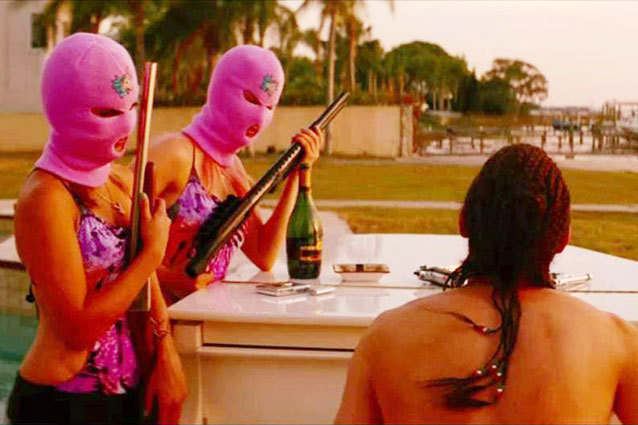Sunday, July 21, 2013
one shots (7/22/13)
Nicolas Winding Refn's Only God Forgives (2013) has been dissed across the board, but Drive (2011), his previous, mostly well-received collaboration with Ryan Gosling, wasn't any more meaningful; it simply simulated meaning more convincingly, or at least more artfully: the plot was pro forma, but there were lively supporting turns by Albert Brooks and Bryan Cranston to distract, and though the taciturnity of Gosling's Driver may have been an empty Kitano/Leone pose, there was at least a narrative context in which it made something like sense; here, we have little to distract us from the yawning nullity at the core of Refn's ostentatious vision, which has been anointed by some cinephiles (willing to give Refn exactly the praise he wants) as Kubrickian, and which Kubrickian vision here consists of revenge as an endless cycle of pointless bloodletting (where have I heard this one before...), enacted by hollow men who, between acts of sadism (too calculated to actually shock anybody in Refn's target demo), stand motionless in dark red rooms while Cliff Martinez's spiff soundtrack groans and throbs, and stare longingly at women and swords, either because mommy doesn't wuv dem or because they're Asian and so ipso facto all in tune with the mystic or something.
Phenomenologically speaking, Harmony Korine's Spring Breakers (2012) is the most exciting American movie of the year thus far, a druggy neon fantasia that subjects gangsta culture detritus and copious T&A to the same sort of enraptured gaze Terrence Malick trains on nature and the cosmos; intellectually, it's so blunt about its satirical intentions (e.g.: "This is the fuckin' American dream, y'all") that one wonders if they're to be taken at face value, and hazy in its execution of those intentions, which depending on how much one trusts Korine, scans as either productively ambivalent, or cowardly in a way all too common in contemporary American movies (a commitment-averse landscape in which even many of our best and brightest take care to avoid or reduce to a muddle the politics of their subjects); I generally like Korine, sometimes lots--the dada humor, scattered moments of real lyricism, a punkish disregard for taste and structure--but I'm not sure that's tantamount to trusting him.
The ideal audience for Nobuhiko Obayashi's House (1977) is a gaggle of hyperactive posthuman nymphets who live in clouds, subsist entirely on a diet of mescaline truffles, and will never know hardship or death; for us all-too-human earthwalkers its wild stylistic inventions can get a little wearying after a while, though it does serve as a useful illustration of how tenuous the boundary is between candy-coated J-pop and psychosis.
Subscribe to:
Post Comments (Atom)



No comments:
Post a Comment